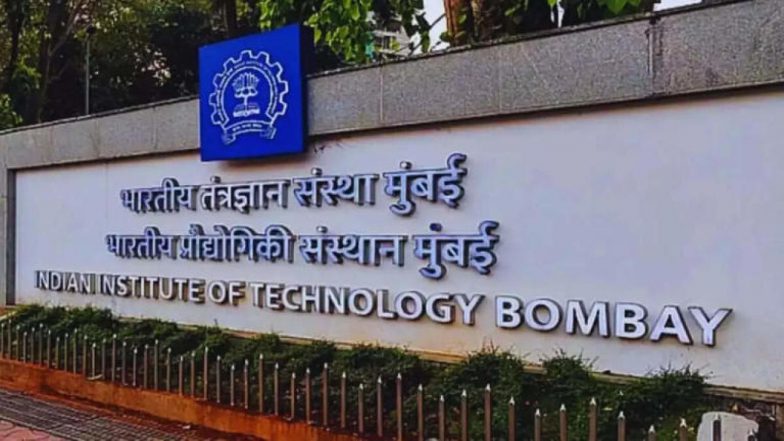Summary
Cybersecurity at the Indian Institutes of Technology (IITs) involves academic programs like M.Tech and certificate courses, dedicated research centers, and professional development programs.
Many IITs have specific cybersecurity departments or hubs focused on research, training, and innovation, often covering areas like critical infrastructure protection, AI-driven cybersecurity, and cryptography.
OnAir Post: IIT Cybersecurity
About
Gemini AI Overview
Academic programs and professional certificates
- M.Tech in Cybersecurity: IIT Delhi offers an M.Tech in Cyber Security covering areas like cyber forensics, cryptanalysis, and embedded system security.
- Certificate and Professional Programs: Various IITs partner with organizations like Imarticus Learning and Emeritus to offer certificate courses in partnership with IITs, such as the Advanced Certification Program in Cyber Security by IIT Roorkee, which covers ethical hacking, cloud security, and incident handling.
- AI and Cybersecurity: Some programs, like one from IIT Madras Pravartak, focus on integrating AI with cybersecurity, including offensive/defensive practices and earning certifications like CISSP.
- Specialized training: Programs often include hands-on training with tools such as Nmap, Wireshark, and Nessus.
Research and innovation hubs
- IIT Madras: Launched the CyStar center to create a strategy for cybersecurity in the AI and post-quantum era, focusing on national infrastructure.
- IIT Kanpur: Has the Cyber Security and Cyber Security for Cyber-Physical Systems (C3i) Innovation Hub for research and developing solutions for critical infrastructure security, which also aims to incubate startups.
- Research focus: Research centers are actively developing tools for intrusion detection, analyzing vulnerabilities, and creating solutions for deployment in the real world.
Advantages of studying cybersecurity at an IIT
- Enhanced career prospects: Certification and degrees from IITs are designed to give graduates a competitive edge in a high-demand field.
- Practical skills: Programs emphasize hands-on training and practical experience with relevant tools and technologies.
- Industry collaboration: Many programs involve collaboration with industry experts and leaders, and partner with companies for recruitment and career assistance.
- Prestigious certification: Successful completion of programs often results in a prestigious certificate validated by the IIT, which can lead to career opportunities.
Source: Gemini AI Overview – 11/11/2025
Gemini AI Deep Dive Overview
Key IITs in Cybersecurity
- IIT Madras has a dedicated Centre for Cybersecurity, Trust and Reliability (CyStar), which focuses on ground-breaking research in blockchain, cryptography, quantum security, AI security, and IoT security. It has collaborations with industry partners like IDBI Bank, Kaspersky, and government organizations like the Ministry of Electronics and Information Technology (MeitY).
- IIT Kanpur is home to the C3iHub (Interdisciplinary Centre for Cyber Security and Cyber Defense of Critical Infrastructures), India’s leading research center for creating technological safeguards for critical infrastructure. It offers M.Tech, MS by Research, and dual B.Tech-M.Tech degrees in cybersecurity and is actively involved in international collaborations.
- IIT Delhi has a Centre for Cyber Security and Information Assurance (CSIA), which provides an interdisciplinary M.Tech program covering system security, cyber forensics, cryptography, cryptanalysis, and hardware security.
- IIT Roorkee collaborates with partners to offer advanced certification programs in cybersecurity and ethical hacking with applied AI, focusing on vulnerability assessment, network security, and incident response.
- IIT Bombay offers professional certificate programs in cybersecurity through its Trust Lab, aimed at working professionals and students, focusing on identifying threats, designing defenses, and managing incidents.
Educational Offerings
- Full-time degrees: Several IITs, including Kanpur and Delhi, offer M.Tech programs with a specialization or interdisciplinary focus on cybersecurity. Some also offer Ph.D. research opportunities and integrated B.Tech-M.Tech programs.
- Online/Certificate courses: Many IITs partner with online platforms to provide advanced certification courses and executive programs for professionals, covering a range of topics from foundations to ethical hacking and AI in security.
- Curriculum Focus: Courses generally cover core areas such as cryptography, network security, secure coding, digital forensics, malware analysis, vulnerability assessment, and risk management.
Research & Industry Collaboration
- Developing indigenous secure technologies (e.g., using the “Shakti” processor for secure firewalls).
- Establishing labs focused on specific sectors like banking, healthcare, and automotive electronics.
- Working on national initiatives to protect critical infrastructure.

